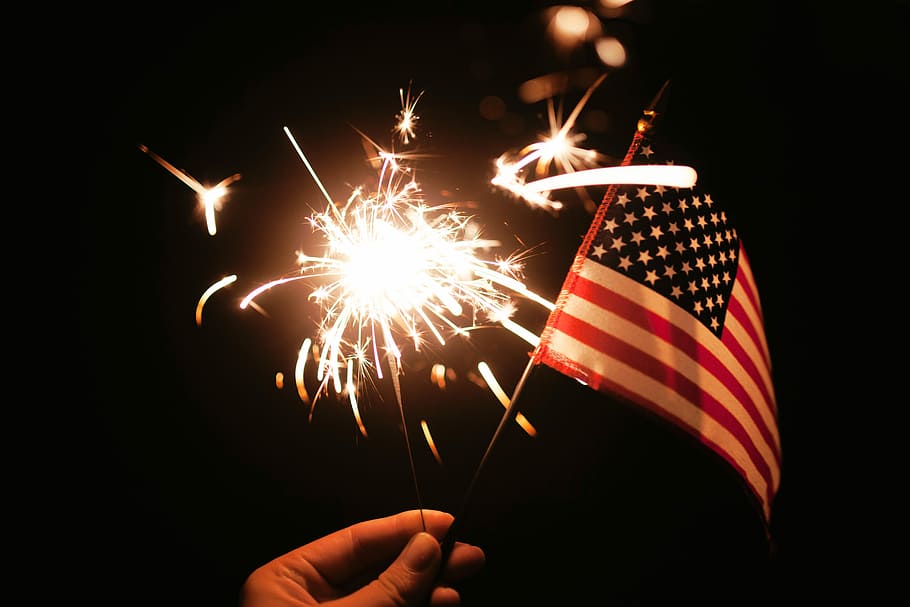
As our nation celebrates its independence, Dan O’Donnell reflects on the perpetual fight to uphold our founding principles.
July 2, 2020
Guest perspective by Dan O’Donnell
Our union was never meant to be perfect. It couldn’t be. Governments instituted among men, after all, are instituted by men—with all of their ignorance, ambition, and selfishness.
These truths have always been self-evident, yet now—when our union seems more threatened than it has in decades—we wallow in our own imperfection and demand not only the righting of current wrongs, but perpetual self-flagellation for all of our nation’s sins.
We are told that we were neither conceived in liberty nor dedicated to ensuring that all men are treated equally, but that we are endowed with the permanent stain of our brutal history.
We are led to believe that our government was instituted to propagate the racial inequity that created our wealth—first through colonization and then through the slave trade. We can never escape this truth and never absolve ourselves of these original sins.
Never before had the power in a society been so vested in its powerless. Control over government, and therefore the means to change—to form a more perfect union—lay not in the hands of the government, but in the people.
We were indeed conceived in an age in which conquest and tyranny were the norm, but we dedicated ourselves to forming a more perfect union and have never stopped trying.
We declared our independence with a commitment to the unalienable rights of life, liberty, and the pursuit of happiness and used these as the basis for our government’s just powers to derive from the consent of the governed.
Never before had the power in a society been so vested in its powerless. Control over government, and therefore the means to change—to form a more perfect union—lay not in the hands of the government, but in the people.
And we the people sought to establish justice, insure domestic tranquility, provide for the common defense, promote the general welfare, and secure the blessings of liberty to ourselves and to prosperity by codifying our ideals in a Constitution.
It, not a king or council or government of any sort, was the supreme law of the land and all—government and governed alike—were subject to it. We were the only nation so conceived and so dedicated that we enshrined within the very essence of our governing structure a Bill of Rights for our citizens.
Our power lay not in the strength of our government, but in the strength of the people empowered to change government should it ever unlawfully infringe on our liberty.
We were the only nation so conceived and so dedicated that we enshrined within the very essence of our governing structure a Bill of Rights for our citizens.
Yes, throughout our history that has happened. The colonization of our land by our European forebears was an undeclared war of conquest against native tribes who had themselves been fighting over the same land for centuries before, but the Old World’s technological superiority and unintentional introduction of devastating disease proved too much for the New World to push back.
As was the way of the world for millennia, the conquered people were forced from their land and the victors expanded their new nation. War and conquest, it seemed, were the way of the New World as well as the Old. Yet in order to form a more perfect union, our nation recognized that sovereign nations that were now within our borders should be treated as such and, as much as possible, allowed to govern themselves.
For perhaps the first time in world history, the victors shared the spoils of conquest with the vanquished. It wasn’t perfect, but no union ever is. The goodness of a nation isn’t measured in perfection seen with the hindsight of centuries; it’s assessed by the lengths a nation will go to more perfectly live up to its ideals.
Our nation is the only one that fought against itself to deliver millions from bondage and paid for its greatest sin with the blood of hundreds of thousands so that our union would be preserved and, yes, more perfect.
Sometimes, those ideals will be tested in a way that rips a nation apart at the seams. When liberty for all is an illusion and bondage is the engine of a supposedly free economy, the good and just among the governed must occasionally fight against a government stunted by its own hypocrisy.
Our nation is the only one that fought against itself to deliver millions from bondage and paid for its greatest sin with the blood of hundreds of thousands so that our union would be preserved and, yes, more perfect.
It wasn’t then and it isn’t now, but no nation on earth has dedicated each of its generations to fighting so hard to better itself; to ensure that all men, all women, all people are more equal, that all lives are valued and protected, and that all are able to, within reason, their idea of happiness.
Our government was instituted among imperfect men who recognized their own imperfections and gave to their ancestors the ability to constantly change their creation as it adapted to changing times.
Their enduring principles, though, never have. As we were at our founding, we are still a nation striving for liberty, equality, and justice for all. And as we were at our founding, we are willing to fight for it. We fought for the right to vote for all. We fought the forces of tyranny and unspeakable evil across the globe to free peoples who could only dream of the life we built for ourselves.
Our ingenuity sparked a revolution of industry and our dedication to freedom within our economy ensured that all who were willing to sacrifice for the betterment of their own lives would invent wonders that have bettered the lives of all.
We, not government, are what make our union more perfect. We, not our government, are and have always been the forces for both societal change and the preservation of our core foundation of individual liberty.
Profit, we recognized, wasn’t an evil in itself, but a motivator to change one’s personal circumstances and in so doing change the world.
When, throughout our history, that motive veered into avarice, we used our government’s just powers to better protect the governed and joined together as the governed to demand change.
The fact that we have always been able to do so; that we have the absolute right to petition our government for the redress of grievances whenever in our history they arise, is perhaps our greatest strength.
We, not government, are what make our union more perfect. We, not our government, are and have always been the forces for both societal change and the preservation of our core foundation of individual liberty.
Now, that liberty is threatened as it perhaps never has been, with government in the name of public health and safety severely limiting or even eliminating altogether our ability to exercise our most basic liberties. Our pushback against government’s excesses and injustices in the manner in which it enforces its laws has devolved into mob violence and a deliberate attempt at erasing a history for which we are told we can never be forgiven.
We all want a more perfect union, but we must all recognize that our imperfections are not unforgivable; that our history should never be erased, but rather understood, accepted, and, most importantly, learned from.
At no time in recent memory has our union felt more insecure, more immoral, more, well, imperfect. We are divided by race, by religion, by gender, by sexuality, by social class, by political ideology, by anything and everything by which a people can be divided.
But we are, as we always have been, one nation, divisible only to the extent that we allow our own ignorance and prejudice allow us to be. We all want a more perfect union, but we must all recognize that our imperfections are not unforgivable; that our history should never be erased, but rather understood, accepted, and, most importantly, learned from.
We must hold this truth to be self-evident; that to ensure the rights we declared our independence to establish and framed our Constitution to protect we must never allow ourselves to be manipulated into dividing ourselves along the fault lines of competing forms of ignorance.
We are one people, conceived in the liberty that we have always defended and dedicated to the proposition that we can, together as we always have, fight the eternal fight for a more perfect union.
